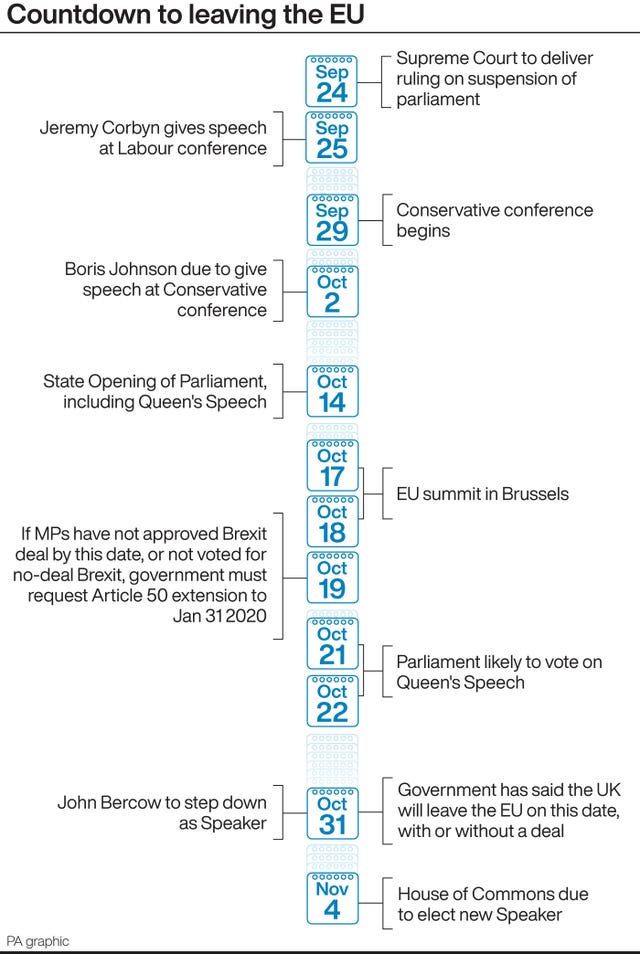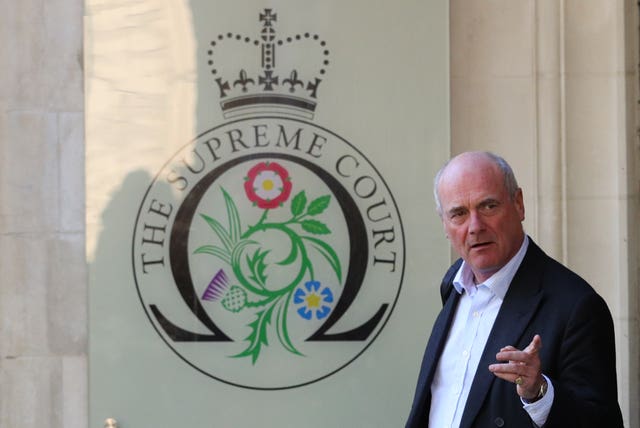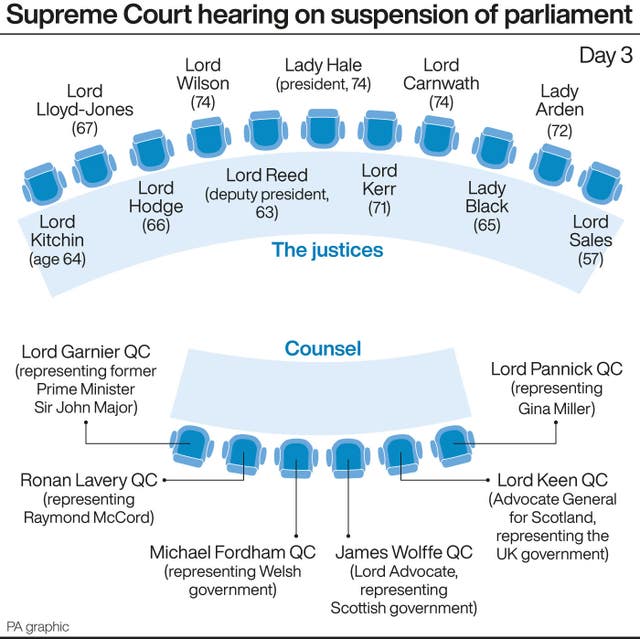Supreme Court to rule on suspension of Parliament: What you need to know
The 11 justices at the Supreme Court in London will rule on appeals from two separate challenges brought in England and Scotland over the suspension.

Boris Johnson’s anxious wait as the UK’s highest court considers whether he acted unlawfully by suspending Parliament for five weeks in the face of a looming Brexit deadline is almost over.
The case is a significant test for the Prime Minister, whose decision to shut the doors of Parliament until October 14 has led to claims he is seeking to avoid challenges to his Brexit strategy ahead of the October 31 withdrawal date.
Because the order to suspend Parliament is made by the Queen, he has also been accused of dragging the monarch into Westminster’s bitter Brexit battle.

– What is the court deciding?
The 11 justices at the Supreme Court in London will rule on appeals from two separate challenges brought in England and Scotland over the suspension – formally known as prorogation – of Parliament.
The High Court in London dismissed a case brought by businesswoman and campaigner Gina Miller, finding that the length of the prorogation was a “purely political” matter and not one for judges to decide.
But the Inner House of the Court of Session in Edinburgh ruled that Mr Johnson’s decision was unlawful because “it was motivated by the improper purpose of stymieing Parliament”.
– What has happened in the Supreme Court?
For fans of constitutional law – the live stream was accessed 4.4 million times on the first day – the case has been a historic test of the separation of powers between the Government, Parliament and the courts.
Over three days, lawyers for all sides – including former prime minister Sir John Major – argued over issues including the Prime Minister’s motive for suspending Parliament and whether judges should have any role in deciding on the issue.
– What did Gina Miller’s lawyer say?
Lord Pannick QC said: “The exceptional length of the prorogation in this case is strong evidence that the Prime Minister’s motive was to silence Parliament for that (five-week) period because he sees Parliament as an obstacle to the furtherance of his political aims.”

– What did the Prime Minister’s lawyer say?
Sir James Eadie QC said the suggestion Mr Johnson’s intention was to “stymie Parliament” is “untenable”.
He told the court: “There is a political advantage to the Government in having a clear space when it is not subject to the daily grind within which to prepare, not merely to do all the things that have to be done in relation to Brexit, but also to prepare a Queen’s Speech.”
– What does Sir John Major think?
His lawyer Lord Garnier QC said the former prime minister is of the view the “inference was inescapable” that Mr Johnson’s decision was “motivated by his political interest in ensuring that there was no activity in Parliament during the period leading up to the EU Council summit on October 17 and 18”.
– What about the Scottish case?
Aidan O’Neill QC, representing a group of around 75 MPs and peers led by SNP MP Joanna Cherry QC, said: “What we have with prorogation is the mother of parliaments closed down by the father of lies. Lies have consequences – but the truth will set us free.”
But for the Government, Advocate General for Scotland Lord Keen QC said the courts “must not cross the boundaries and intrude upon the business of Parliament”.

– When will the justices give their decision?
The Supreme Court is going to give its decision at 10.30am on Tuesday morning.
– What could they decide?
If they side with the decision of the High Court and rule that judges have no place in interfering with purely political matters, then the suspension of Parliament will continue until October 14 and the Prime Minister can breathe a sigh of relief.
But if they decide that the prorogation was unlawful, then Parliament could be recalled.
Lord Keen said the Prime Minister will comply with the Supreme Court’s ruling if it concludes his advice to the Queen was unlawful – but refused to rule out the possibility Mr Johnson may advise the monarch to prorogue Parliament for a second time.





